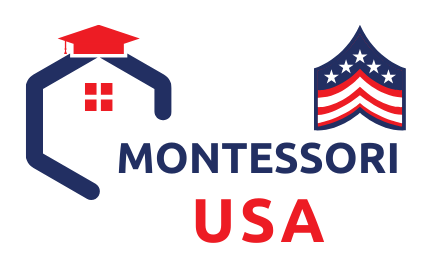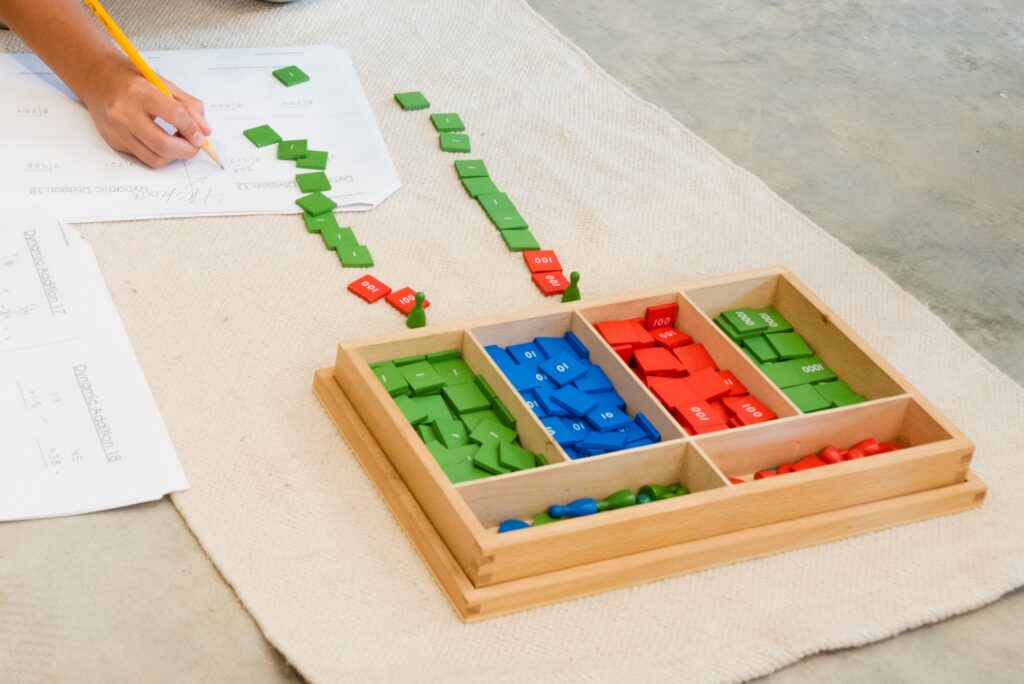Montessori education, a unique and transformative approach to learning, has been the subject of much discussion and debate over the years. Rooted in the principles set forth by Dr. Maria Montessori over a century ago, this method prioritizes child-centric learning in a carefully prepared environment. But what makes Montessori stand out from other educational methods? And which montessori accreditation is best?
Key Takeaways:
- Montessori education is a child-centered approach that emphasizes self-directed learning.
- It contrasts significantly with traditional educational methods.
- Montessori schools are diverse and offer a global perspective on learning.
Which is the Montessori Method?
Understanding the Basics
The Montessori method is a holistic, child-centered approach to education. It emphasizes hands-on learning, self-exploration, and the development of a child’s natural interests. Children in Montessori classrooms learn by doing, and they are often given the freedom to choose their activities and work at their own pace.
Which is Better: Montessori or Kindergarten?
While both Montessori and kindergarten have their merits, the primary difference lies in the approach to teaching. Montessori emphasizes individualized learning and allows children to explore topics that interest them. Kindergarten, on the other hand, often follows a more structured curriculum.
Which is Better: Montessori or Regular School?
Regular schools typically follow a set curriculum, with teachers directing the learning process. In contrast, Montessori schools provide a more flexible learning environment, allowing children to explore topics of interest at their own pace.
Montessori Schools in the USA
If you’re considering Montessori education in the USA, you’re in for a treat. The country boasts a plethora of schools dedicated to this unique method. For instance, the website zhshcn.com offers a comprehensive directory of Montessori schools across the nation.
Which Montessori Book to Read First?
For those new to Montessori, “The Montessori Method” by Maria Montessori is a great starting point. This foundational text provides insights into Dr. Montessori’s philosophy and approach to education.
Which Montessori Course is Best in India?
India, with its rich educational heritage, offers several Montessori training programs. Among them, the Indian Montessori Training Courses (IMTC) is highly regarded and recognized internationally.
Montessori vs. Waldorf
Another educational method that often draws comparisons with Montessori is the Waldorf approach. While both emphasize holistic education, Waldorf schools focus more on creativity, imagination, and the arts. Which is better montessori or waldorf largely depends on individual preferences and the specific needs of the child.
Which is Best: Montessori or Preschool?
Preschools offer a structured environment that prepares children for formal schooling. Montessori, on the other hand, offers a more flexible learning environment. The best choice depends on the child’s learning style and the preferences of the parents.
Which is Better: Montessori or Reggio Emilia?
Like Montessori, the Reggio Emilia approach is child-centered. However, it places a greater emphasis on collaborative projects and the use of art as a medium of expression.
A Glimpse into a Montessori Classroom
For a visual understanding of the Montessori method, consider watching this video:
It provides an introduction to the Montessori method and showcases a typical Montessori classroom in action.
Which Class is Montessori?
Montessori education spans from infancy to adolescence. It’s divided into several levels based on age: Infant (0-3 years), Primary (3-6 years), Elementary (6-12 years), and Adolescent (12-18 years).
Tables with Relevant Facts
| Age Group | Montessori Level | Key Focus |
|---|---|---|
| 0-3 years | Infant | Sensorial exploration, basic motor skills |
| 3-6 years | Primary | Language, math, cultural studies |
| 6-12 years | Elementary | In-depth exploration of subjects, collaborative projects |
| 12-18 years | Adolescent | Preparing for adulthood, specialized studies |
Stay tuned for Part 2, where we’ll delve deeper into the nuances of Montessori education and address frequently asked questions.
Montessori Education: A Deeper Dive
In Part 1, we introduced the Montessori method and its foundational principles. Now, let’s delve deeper into the nuances of Montessori education, explore its global reach, and address some frequently asked questions.
Montessori Around the World
Montessori education, while rooted in Italy, has found its way into the hearts and minds of educators and parents globally. From the bustling streets of New York to the serene landscapes of New Zealand, Montessori schools have sprouted, each offering a unique flavor while staying true to Dr. Maria Montessori’s vision.
Montessori in Europe
Europe, being the birthplace of Montessori, has a rich history of Montessori education. Countries like the Netherlands, Spain, and the UK have a significant number of Montessori schools. These institutions have played a pivotal role in shaping the European educational landscape.
Montessori in Asia
Asia, with its diverse cultures and traditions, has embraced Montessori with open arms. Countries like India, China, and Japan have seen a surge in Montessori schools in recent years. The method’s emphasis on individuality and self-paced learning resonates well with Asian values of respect for individual growth.
Montessori in the Americas
From North to South, the Americas have seen a steady rise in Montessori institutions. The USA, in particular, has a vast network of Montessori schools catering to diverse communities. Latin American countries like Brazil and Argentina are also witnessing a growing interest in Montessori education.
Montessori vs. Other Educational Philosophies
While Montessori stands out for its unique approach, it’s essential to understand how it compares with other educational philosophies.
Montessori vs. Traditional Schools
Traditional schools often follow a set curriculum with a teacher-led approach. In contrast, Montessori emphasizes child-led learning in a prepared environment. The focus is on nurturing the child’s natural curiosity.
Montessori vs. Homeschooling
Homeschooling allows parents to tailor the educational experience to their child’s needs. While it offers flexibility, Montessori provides a structured environment that encourages self-directed learning. Both methods prioritize individualized attention.
The Global Reach of Montessori
The Montessori method’s universal appeal is evident in its global reach. From urban centers to remote villages, Montessori schools have made their mark. For a comprehensive list of Montessori schools worldwide, consider visiting zhshcn.com.
Frequently Asked Questions
Which Montessori certification is best?
There are several Montessori certifications available. The best one often depends on individual preferences and regional recognition. The Association Montessori Internationale (AMI) and the American Montessori Society (AMS) are among the most recognized.
How does Montessori differ from Waldorf or Reggio Emilia?
While all three methods are child-centered, they have distinct philosophies. Waldorf emphasizes creativity and the arts, Reggio Emilia focuses on collaborative projects, and Montessori prioritizes self-directed learning.
Is Montessori suitable for every child?
Montessori education, with its flexible approach, can cater to a wide range of learning styles. However, it’s essential for parents to understand the method and determine if it aligns with their child’s needs.
External Resources
For those keen on exploring more about Montessori, here are some valuable external resources:
Remember, every child is unique, and the best educational approach is one that resonates with the child’s innate curiosity and passion for learning.

